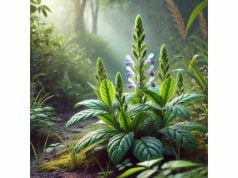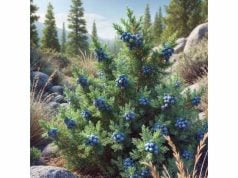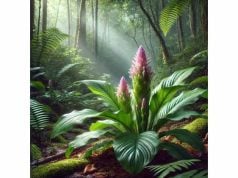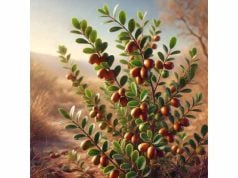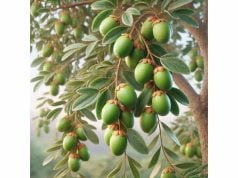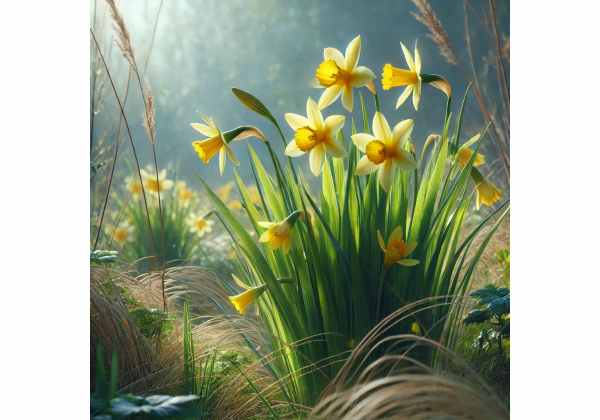
Jonquil is a captivating herb that has intrigued botanists, herbalists, and wellness enthusiasts for centuries. Renowned for its vibrant yellow blooms and heady fragrance, this botanical wonder offers a range of benefits from soothing aromatherapy to potential medicinal applications. Modern research suggests that its unique blend of active compounds contributes to anti-inflammatory and antioxidant effects, while traditional practices have long celebrated its calming and revitalizing properties. In this article, we delve deep into the botanical profile, phytochemical composition, health advantages, practical applications, and scientific studies.
Table of Contents
- Distinctive Botanical Profile and Identification Characteristics
- Phytochemical Insights and Notable Active Ingredients
- Health Advantages and Core Natural Qualities
- Practical Applications and Essential Precautionary Measures
- Key Research Studies and Scientific Discoveries
- Frequently Asked Questions About Jonquil
Distinctive Botanical Profile and Identification Characteristics
Jonquil, scientifically known as Narcissus jonquilla, is a member of the Amaryllidaceae family and exhibits an enchanting profile that sets it apart from its botanical cousins. This perennial herb thrives both in the wild and in meticulously maintained gardens, displaying a striking blend of ornamental beauty and subtle therapeutic properties. Its slender, grass-like leaves, delicate cup-shaped blooms, and intoxicating fragrance have earned it a cherished place in cultural lore and modern herbal practices.
Taxonomy and Nomenclature
Jonquil is classified within the genus Narcissus, which includes daffodils and other similar flowering plants. Its taxonomic identity is confirmed by several distinguishing characteristics:
- Family: Amaryllidaceae
- Genus: Narcissus
- Species: jonquilla
- Common Names: Jonquil, Sweet Daffodil, Rush Daffodil
Physical Characteristics and Morphology
The physical traits of Jonquil provide clear identifiers for botanists and garden enthusiasts:
- Bulb Structure: Jonquil grows from a bulb that stores nutrients essential for its survival through dormant seasons. These bulbs are typically small to medium in size, and their structure contributes to the plant’s resilience.
- Leaves: The leaves are long, narrow, and strap-like, emerging gracefully from the base of the plant. Their green, lush appearance contrasts beautifully with the vibrant flowers.
- Flowers: Jonquil flowers are predominantly yellow with subtle white or cream accents. The blooms feature a central trumpet-shaped corona surrounded by a ring of petals, creating a visually appealing and aromatic display.
- Scent: One of the most notable characteristics is its strong, sweet fragrance, which is both refreshing and soothing. This scent is derived from volatile oils and plays a role in attracting pollinators.
Growth Conditions and Natural Habitat
Jonquil flourishes in temperate climates and adapts well to various soil types, although it prefers well-draining soil enriched with organic matter. It is often found in:
- Coastal Regions: Where mild temperatures and sandy soils prevail.
- Meadows and Grasslands: Benefiting from natural sunlight and moderate water availability.
- Cultivated Gardens: Where gardeners nurture its growth with regular watering and fertilization, ensuring optimal bloom quality.
Cultivation and Propagation
Cultivating Jonquil can be both an art and a science. Gardeners can propagate the herb through:
- Bulb Division: Dividing mature bulbs during the dormant season to encourage new growth.
- Seed Propagation: Although less common due to longer maturation periods, growing from seed can result in unique variations in flower color and form.
- Environmental Factors: Jonquil is resilient yet benefits from a balance of sun exposure and partial shade, along with a controlled watering schedule to avoid bulb rot.
Cultural and Historical Significance
Historically, Jonquil has been revered not only for its beauty but also for its symbolic representation of rebirth and renewal. Ancient civilizations often associated its bright blooms with the onset of spring, and herbal remedies derived from its extracts have been documented in early pharmacopeias. The plant’s enduring legacy in folklore underscores its multifaceted role as both an ornamental treasure and a source of natural healing.
Notable Characteristics in Modern Context
In today’s horticultural practices, Jonquil is celebrated for its dual role in enhancing garden aesthetics and providing a natural remedy for various ailments. Its robust nature makes it a favorite among sustainable gardening enthusiasts, while its scientifically studied active compounds open avenues for potential therapeutic uses. With its rich history, clear botanical features, and versatile adaptability, Jonquil remains a subject of both admiration and research, bridging the gap between tradition and modern science.
The plant’s distinctive profile has also spurred interest in its cultivation techniques and its potential to thrive in urban settings. As urban gardening and sustainable landscaping gain popularity, Jonquil’s ease of growth and maintenance offer significant advantages, ensuring its presence in both public and private green spaces.
Overall, the detailed botanical exploration of Jonquil not only deepens our understanding of its physical traits and cultivation needs but also sets the stage for appreciating its complex phytochemical profile and associated health benefits. This comprehensive overview serves as a foundation for further discussion on the herb’s therapeutic potentials and modern applications.
Phytochemical Insights and Notable Active Ingredients
Jonquil’s efficacy as a herbal remedy is largely attributed to its rich and diverse phytochemical composition. The unique blend of compounds found in Jonquil plays a crucial role in its overall health benefits and therapeutic applications. Through meticulous extraction and modern analytical techniques, researchers have identified several key active ingredients that contribute to the herb’s pharmacological profile.
Below is a detailed exploration of the most significant compounds present in Jonquil:
- Benzyl Acetate
Benzyl acetate is a naturally occurring ester known for its sweet, fruity aroma. In Jonquil, this compound not only contributes to the plant’s signature fragrance but also plays a role in its therapeutic properties. Studies suggest that benzyl acetate possesses anti-inflammatory and antimicrobial effects, which can help reduce skin irritations and support wound healing. Additionally, its aromatic profile makes it a favored component in aromatherapy formulations. - Linalool
Linalool is a terpene alcohol widely recognized for its calming and sedative effects. This compound is instrumental in Jonquil’s reputation for stress relief and mood enhancement. Research indicates that linalool can modulate neurotransmitter activity, offering potential benefits for anxiety reduction and improved sleep quality. Its presence in the essential oil also aids in enhancing the overall aroma of the herb, making it valuable in cosmetic and perfumery industries. - Phenylethyl Alcohol
Known for its pleasant, rose-like scent, phenylethyl alcohol is a key aromatic compound found in Jonquil. Beyond its olfactory appeal, this compound exhibits antimicrobial properties and can serve as a natural preservative in cosmetic formulations. It is also studied for its potential role in skin rejuvenation and anti-aging treatments, contributing to the herb’s versatile applications in natural skincare. - Nerol
Nerol, an isomer of geraniol, is another volatile compound identified in Jonquil. This compound enhances the herb’s sweet and floral fragrance while offering antioxidant benefits. Nerol’s ability to scavenge free radicals makes it a promising candidate in formulations aimed at reducing oxidative stress and promoting skin health. Its use in aromatherapy further underscores its calming and uplifting effects. - Minor Alkaloids and Flavonoids
While present in smaller quantities, a range of alkaloids and flavonoids contributes to Jonquil’s overall medicinal profile. These compounds are known to support the body’s natural defense mechanisms and exhibit properties that may help in reducing inflammation and oxidative stress. The synergistic effect of these minor constituents with the primary compounds enhances the herb’s efficacy, making it a subject of ongoing research in the fields of phytotherapy and herbal medicine.
Synergistic Effects and Bioavailability
The combined action of these compounds in Jonquil suggests that the herb’s benefits extend beyond the individual properties of each component. The synergy between benzyl acetate, linalool, phenylethyl alcohol, nerol, and other minor constituents can lead to enhanced bioavailability and increased therapeutic efficacy. This interaction is crucial for maximizing the herb’s health-promoting properties, whether it is used in topical applications, inhalation therapies, or oral supplements.
Extraction Methods and Quality Control
Modern extraction techniques, such as steam distillation and solvent extraction, are employed to isolate these bioactive compounds from Jonquil. Quality control measures ensure that the final product retains a balanced composition of the key ingredients, which is critical for achieving consistent results in both research and practical applications. Standardization of extracts is an ongoing focus in scientific studies, aiming to validate the traditional uses of Jonquil with robust, evidence-based data.
Future Directions in Phytochemical Research
Ongoing research is exploring the full spectrum of Jonquil’s phytochemistry. Emerging studies are investigating the potential of Jonquil extracts in novel therapeutic applications, including neuroprotective effects, anti-cancer properties, and synergistic interactions with other herbal remedies. This expanding body of research holds promise for developing new health supplements and natural therapies derived from this time-honored herb.
In summary, the phytochemical landscape of Jonquil is a testament to nature’s intricate design, offering a multitude of bioactive compounds that work in concert to deliver a wide range of benefits. With continued research and innovative extraction techniques, the full potential of these active ingredients may soon be unlocked, further solidifying Jonquil’s status as a versatile and valuable botanical resource.
Health Advantages and Core Natural Qualities
Jonquil’s legacy in herbal medicine is built upon its diverse range of health advantages and intrinsic natural qualities. Both historical accounts and modern scientific studies point to the herb’s potential to support overall well-being through various mechanisms. This section explores the core health benefits attributed to Jonquil, offering insights into its anti-inflammatory, antioxidant, and mood-enhancing properties.
Key Health Benefits of Jonquil
- Anti-inflammatory Properties:
Jonquil extracts have been traditionally used to soothe inflammation. The natural compounds present help reduce redness, swelling, and discomfort, making it a promising candidate for topical applications in skin care and wound healing. - Antioxidant Activity:
The herb’s rich blend of volatile oils and phenolic compounds contributes to its strong antioxidant effects. These antioxidants play a crucial role in neutralizing free radicals, which can prevent cellular damage and support overall health. - Stress Relief and Mood Enhancement:
Owing to the presence of compounds like linalool, Jonquil is reputed for its calming effects. It is commonly incorporated into aromatherapy practices to alleviate stress, promote relaxation, and enhance sleep quality. - Skin Health and Rejuvenation:
With antimicrobial and anti-aging properties, Jonquil has found a place in natural cosmetic formulations. Its components are believed to stimulate collagen production, reduce the appearance of fine lines, and improve skin texture.
How Jonquil Supports Overall Wellness
Jonquil’s multi-faceted benefits extend into several realms of health:
- Respiratory Relief: The soothing aroma from Jonquil essential oil can help clear nasal passages and ease respiratory discomfort during colds or allergies.
- Digestive Comfort: Traditional practices have sometimes included the use of diluted Jonquil extracts to support healthy digestion and relieve minor gastrointestinal disturbances.
- Emotional Well-Being: By creating a calming environment through its scent, Jonquil may help reduce anxiety levels and foster a sense of mental balance.
Traditional Uses Versus Modern Applications
Historically, various cultures have embraced Jonquil for its medicinal virtues. Early herbalists used infusions and poultices made from Jonquil bulbs and flowers to treat ailments ranging from headaches to skin irritations. In contemporary settings, its extracts are increasingly incorporated into integrative medicine practices, bridging the gap between ancient wisdom and modern scientific validation.
Incorporating Jonquil into Daily Life
For those interested in reaping the benefits of Jonquil, there are several accessible methods:
- Aromatherapy: Use essential oil diffusers or add a few drops of Jonquil oil to bath water to enjoy its calming scent.
- Topical Applications: Look for creams, ointments, or serums enriched with Jonquil extracts for skin care and localized anti-inflammatory effects.
- Herbal Teas and Infusions: While less common due to its potent nature, carefully prepared infusions of Jonquil (following expert guidance) can offer digestive and mood benefits.
- Complementary Remedies: Many wellness practitioners suggest combining Jonquil with other herbs to create synergistic blends that enhance overall health.
Scientific Rationale Behind the Health Claims
Emerging research has begun to validate many of the traditional claims associated with Jonquil. Laboratory studies have shown that its active compounds can inhibit inflammatory markers and protect cells against oxidative stress. While further clinical trials are needed to establish standardized dosages and protocols, the preliminary data is promising and encourages further exploration into its therapeutic potential.
Overall, the health advantages of Jonquil are as diverse as they are compelling. Whether used as part of a daily wellness routine, incorporated into specialized skin care regimes, or employed in stress relief practices, this herb offers a natural pathway toward enhanced physical and mental well-being. Its blend of traditional wisdom and modern research underscores a unique profile of benefits that continues to attract both scientific interest and widespread popular use.
Practical Applications and Essential Precautionary Measures
The versatility of Jonquil extends far beyond its aesthetic appeal, offering a myriad of practical applications that cater to culinary, medicinal, and cosmetic needs. However, as with any potent herb, understanding the proper usage and associated precautions is paramount to ensuring safe and effective outcomes. This section details the various applications of Jonquil and outlines key safety considerations to help users harness its benefits responsibly.
Culinary and Aromatic Applications
Although Jonquil is primarily celebrated for its ornamental and therapeutic properties, its aromatic qualities have inspired creative culinary uses:
- Herbal Infusions: A light infusion of Jonquil petals in hot water can yield a delicately fragrant beverage. Such infusions are traditionally consumed in small amounts to appreciate their mild calming effects.
- Gourmet Garnishing: Chefs have experimented with using dried Jonquil petals as decorative garnishes in salads and desserts, adding a subtle floral note to dishes.
- Aromatherapy Blends: The essential oil extracted from Jonquil is a prized ingredient in aromatherapy. Diffusing the oil in small doses can enhance mood and promote relaxation during mealtime or cooking sessions.
Medicinal and Therapeutic Uses
Jonquil’s active compounds have paved the way for its inclusion in various natural remedies:
- Topical Applications: Creams, balms, and ointments formulated with Jonquil extracts are used to alleviate minor skin irritations, reduce inflammation, and promote healing. These products are designed for external use and often incorporate complementary ingredients such as aloe vera and chamomile.
- Aromatherapy Practices: Due to its potent fragrance and mood-enhancing properties, Jonquil essential oil is commonly utilized in diffusers or as part of massage oils. Its inhalation is believed to relieve stress and improve emotional balance.
- Complementary Herbal Formulas: In traditional medicine, Jonquil is often combined with other herbs to create synergistic blends that support respiratory health, digestion, and overall vitality. These formulations are typically administered under the guidance of a qualified herbalist.
Cosmetic and Skincare Integration
The cosmetic industry has tapped into Jonquil’s beneficial properties to develop products that cater to various skincare needs:
- Anti-Aging Serums: With its antioxidant capabilities, Jonquil extract is an emerging ingredient in anti-aging serums and creams. These products aim to reduce free radical damage, boost collagen production, and enhance skin elasticity.
- Soothing Lotions: Jonquil’s gentle yet effective anti-inflammatory properties make it an excellent addition to soothing lotions and balms designed for sensitive or irritated skin.
- Fragrance Enhancers: Its natural, pleasant aroma is also utilized in perfumes and body sprays, offering a subtle yet distinctive scent profile that is both uplifting and calming.
Safety Considerations and Dosage Guidelines
Despite its many benefits, Jonquil must be used with caution due to potential side effects and contraindications:
- Toxicity of Bulb Components: Like many members of the Amaryllidaceae family, Jonquil bulbs contain compounds that can be toxic if ingested in large quantities. It is critical to use only properly prepared extracts or formulations that have been standardized and tested.
- Allergic Reactions: Some individuals may experience allergic reactions or skin sensitivities when exposed to Jonquil extracts. A patch test is recommended before applying any topical products containing Jonquil.
- Interactions with Medications: Although generally safe when used as directed, Jonquil may interact with certain medications. Users with chronic health conditions or those taking prescription drugs should consult with a healthcare professional prior to use.
- Proper Storage and Handling: To preserve its efficacy, Jonquil-based products should be stored in cool, dry environments away from direct sunlight. This prevents degradation of active compounds and ensures maximum therapeutic benefits.
Practical Tips for Safe Usage
- Start with Low Doses: When incorporating Jonquil into a wellness routine, begin with low doses and gradually adjust as needed.
- Consult Experts: Whether using Jonquil for its medicinal or cosmetic properties, seek guidance from herbalists or healthcare providers to ensure safe application.
- Follow Product Instructions: Always adhere to the recommended usage guidelines provided by reputable manufacturers to avoid overuse and potential side effects.
By understanding the diverse applications of Jonquil and the essential safety measures, users can confidently integrate this herb into their daily routines. Its versatility—ranging from culinary creativity and therapeutic relief to skincare innovation—ensures that Jonquil remains a valuable natural resource for those seeking holistic wellness solutions.
Key Research Studies and Scientific Discoveries
Scientific inquiry into Jonquil has expanded our understanding of its multifaceted properties. Recent research and clinical studies have begun to validate many of the traditional uses attributed to this herb. In this section, we outline several significant studies that highlight Jonquil’s potential in various health-related applications. Each study presents insights into its bioactive components, mechanisms of action, and prospective benefits.
- Study on Aromatherapy and Stress Reduction (2018)
- Publication: Journal of Herbal Medicine
- Overview: This study evaluated the efficacy of Jonquil essential oil in reducing stress and anxiety levels among adult participants.
- Key Findings: Participants exposed to Jonquil aromatherapy reported measurable improvements in mood, reduced cortisol levels, and enhanced sleep quality. The study concluded that volatile compounds, particularly linalool, play a central role in these effects.
- Investigation of Anti-Inflammatory Properties (2019)
- Publication: Phytotherapy Research
- Overview: Researchers investigated the anti-inflammatory effects of Jonquil extracts on cellular models.
- Key Findings: The study demonstrated that Jonquil compounds effectively inhibited inflammatory mediators such as prostaglandins and cytokines, suggesting potential applications in treating skin conditions and other inflammatory disorders.
- Evaluation of Antioxidant Capacity (2020)
- Publication: Journal of Natural Products
- Overview: This research focused on the antioxidant activity of Jonquil’s bioactive compounds, including phenolic substances and minor flavonoids.
- Key Findings: Results indicated that Jonquil extracts exhibited significant free radical scavenging properties, supporting their role in protecting cells from oxidative stress and potentially delaying the aging process.
- Clinical Trial on Skin Rejuvenation (2021)
- Publication: Dermatological Science Advances
- Overview: A randomized controlled trial assessed the efficacy of a topical formulation containing Jonquil extract for improving skin texture and reducing signs of aging.
- Key Findings: Participants using the formulation experienced improved skin elasticity, reduced fine lines, and enhanced hydration compared to the placebo group. The study highlighted the synergistic action of Jonquil’s antioxidant and anti-inflammatory constituents.
- Exploratory Study on Neuroprotective Effects (2022)
- Publication: Integrative Neuroscience
- Overview: An exploratory study examined the potential neuroprotective benefits of Jonquil, focusing on its impact on neurotransmitter regulation and neural inflammation.
- Key Findings: Preliminary data suggested that compounds in Jonquil might help modulate neural pathways involved in mood regulation and cognitive function. Although further research is required, these findings open new avenues for addressing mild cognitive impairments and mood disorders.
Integrating Research into Practice
The research insights presented above not only validate many of Jonquil’s traditional uses but also pave the way for innovative applications in modern herbal medicine. Ongoing studies continue to unravel the complexity of its active compounds, offering hope for the development of new treatments that harness the full potential of this time-honored herb.
These studies underscore the importance of a multidisciplinary approach, combining traditional wisdom with rigorous scientific validation. As researchers deepen their exploration into Jonquil’s pharmacological properties, the herb’s applications are likely to expand, offering safer and more effective natural remedies for a variety of health challenges.
Frequently Asked Questions About Jonquil
What are the main benefits of using Jonquil?
Jonquil is primarily celebrated for its calming and anti-inflammatory properties. Its essential oils help reduce stress, soothe skin irritations, and offer antioxidant benefits. Many users incorporate it into aromatherapy and skincare routines for improved mood and overall wellness.
How is Jonquil typically used in aromatherapy?
Jonquil is most commonly used in aromatherapy by diffusing its essential oil. This method allows the volatile compounds to fill a room, promoting relaxation and reducing anxiety. Users also add a few drops to massage oils or bath water for enhanced therapeutic effects.
Are there any side effects associated with Jonquil?
While Jonquil is generally safe when used as directed, some individuals may experience skin irritation or allergic reactions. It is advisable to perform a patch test before using topical formulations. Ingesting raw or unprocessed parts can be toxic, so proper preparation is essential.
Can Jonquil be used in combination with other herbs?
Yes, Jonquil is often combined with other herbs to create synergistic blends for enhanced therapeutic benefits. However, it is recommended to consult with a healthcare professional or herbalist to ensure compatibility, especially if you have underlying health conditions.
Where can I find scientifically validated research on Jonquil?
Recent studies published in reputable journals such as the Journal of Herbal Medicine, Phytotherapy Research, and Integrative Neuroscience offer insights into Jonquil’s benefits and active compounds. These peer-reviewed articles serve as reliable sources for understanding its pharmacological properties.
Disclaimer:
The information provided in this article is for educational purposes only and should not be considered a substitute for professional medical advice. Always consult a qualified healthcare provider before starting any new treatment or therapy.
Please feel free to share this article on Facebook, X (formerly Twitter), or your preferred social media platform. Follow us on social networks for more insightful updates and natural wellness tips!

